The written word has long played an important role in helping to define our emotional response to the difficult question of the rights and wrongs of warfare. The earliest of the following ten books was published in 1921 and the latest in the 2020s, but each has a powerful statement to make regarding the horror and futility of war at a time when once again, sadly, military conflict appears to be escalating across the world.
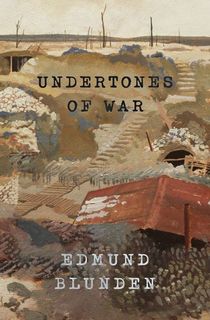
Undertones of War
Published in 1928, British army officer Edmund Blunden’s autobiographical account of life in the trenches during some of the bloodiest battles in world history was one of the first World War I memoirs to hit the shelves, and it still has the power to move and shock the reader today. Blunden enjoyed a close friendship with Siegfried Sassoon and, like him, was a fine poet as well as a writer of prose. Here Blunden utilizes much of that same poetic style and imagery to highlight the ultimate futility of war. Military historian Cyril Falls described Undertones of War as “a masterpiece…the best English book of its kind”.
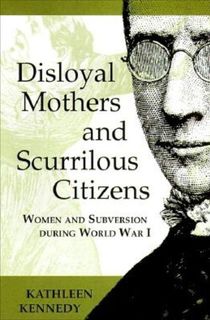
Disloyal Mothers and Scurrilous Citizens
Full of compelling detail, Kathleen Kennedy’s Disloyal Mothers and Scurrilous Citizens focuses on the individual stories of some of the women who were arrested and charged under the Wartime Emergency Laws following America’s entry into World War I. Many were harshly treated, including Kate O’Hare, one of the women featured in Kennedy’s book, who was sentenced to five years in prison after giving an anti-war speech in North Dakota. The author also provides an interesting commentary on the wider implications of these events in terms of the way in which women’s obligations to national security were subsequently defined.
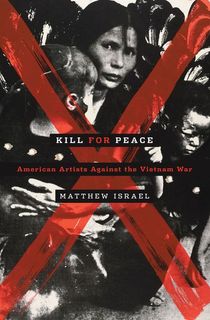
Kill for Peace
Art historian Matthew Israel’s “accessible and informative” book (Art Libraries Society of North America) on the US art world’s reaction to the Vietnam War provides a different and interesting slant on the anti-war protest movement of that era. The author portrays the reactions of artists, individually and collectively, to the unfolding events in the Vietnam War. Whilst some artists produced memorable artworks including faux war memorials, deliberately constructed before the end of the war to highlight its futility, others staged walk-outs and organized petitions. This book illustrates the importance of the role played by the US creative community in the anti-war protest movement as well as highlighting how their actions have influenced the reactions of future generations of artists to subsequent conflicts.
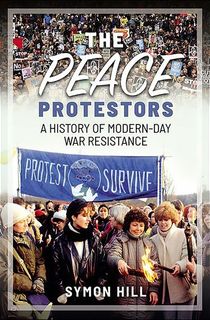
The Peace Protestors
This recent book by peace campaigner Symon Hill provides a fascinating insight into the modern history of anti-war campaigning in the UK. Covering the major military conflicts in which the British armed forces have been involved over the past 40 years, Hill has undertaken plenty of new research to uncover many little-known protestors’ stories. From the Falklands War and the Northern Ireland conflict to Afghanistan and Iraq, the author eloquently brings to life this important aspect of recent UK military history.
Fiction
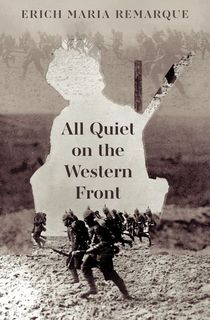
All Quiet on the Western Front
Recently adapted into an Oscar-winning movie, Erich Maria Remarque’s 1929 classic wartime novel tells the story of a naïve young German soldier who enlists in the army with his fellow classmates during World War I. During the course of the novel, these young men’s lives are irrevocably changed by the horror and suffering they encounter at the front. Few writers have better captured the futility of war than Remarque, who based the story on his own experiences on the frontline in the German Imperial Army. Once banned by the Nazis on account of its anti-war slant, All Quiet on the Western Front is now widely regarded as one of the greatest war novels of all time.
Fiction
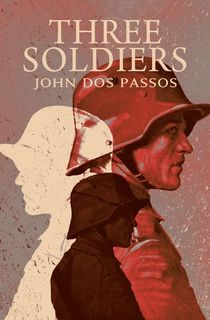
Three Soldiers
This 1921 novel is based on the author’s personal experiences as an ambulance driver in France during World War I and reflects his own anti-war stance. Following three idealistic young US soldiers who are posted to France in the closing stages of the war, Dos Passos was still only in his early twenties when this book was first published. Yet he shows much early promise as a writer in this powerfully realistic depiction of the sheer inhumanity of war and its capacity to shatter the lives of those who are compelled to take part in it. Though largely forgotten today, it comes as little surprise to discover that Dos Passos subsequently went on to enjoy a long and distinguished career as an author right up to his death in 1970.
Fiction
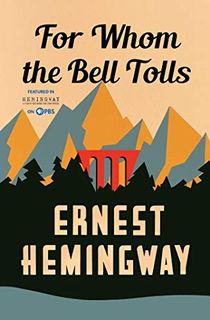
For Whom the Bell Tolls
Hemingway’s classic 1940 novel tells the story of Robert Jordan, a young American who volunteers to fight in the International Brigades on the Republican side during the Spanish Civil War. Events in the novel are heavily based on Hemingway’s own experiences as a reporter for the North American Newspaper Alliance in Spain during the late 1930s. The great US novelist has used all of his considerable talents in this literary masterpiece to deal with some huge topics such as the brutality of war and the value of human life.

Hiroshima
Pulitzer-Prize winning journalist John Hersey’s harrowing, but sensitive, account of what happened in the aftermath of the atomic bomb attack on the Japanese city of Hiroshima caused a sensation when it first appeared in The New Yorker in August 1946. Told through the eyes of six survivors, Hersey was the first to write in detail about the devastating after-effects of the August 1945 bombing from the Japanese perspective and brought home to a horrified public the human suffering caused by deploying such a device.
Hersey’s seminal work was published in book form within a matter of weeks and has never been out of print since. In 1985, a final chapter was added to the book, in which Hersey returned to Hiroshima to discover the long-term effects of the bomb on the survivors. Now regarded as one of the most influential war books of all time, Hersey’s Hiroshima “speaks for itself, and in an unforgettable way, for humanity” (The New York Times).

Dispatches
Michael Herr spent over two years in Vietnam covering the war for Esquire Magazine and subsequently published Dispatches, a no-holds-barred account of the experiences of the soldiers he encountered there. Herr suffered a nervous breakdown as a result of what he witnessed and was unable to put pen to paper for several years, meaning that the book was not published until 1977. Critics agree, though, that it was well worth the wait, with The New York Times acclaiming Dispatches as “the best book to have been written about the Vietnam War”. Herr has a distinctive and unorthodox writing style all his own, which he uses to great effect in this modern classic to portray the utter chaos and insanity of life in a war zone.
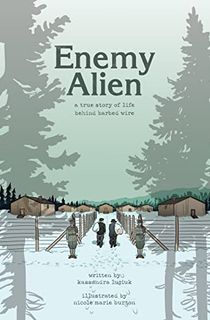
Enemy Alien: A True Story of Life Behind Barbed Wire
Written by Kassandra Luciuk and illustrated by Nicole Marie Burton, this innovative graphic novel is based on the real-life story of John Boychuk, one of several thousand civilians of Ukrainian descent held in Canadian internment camps during World War I. Boychuk’s memoir of his experiences during his three-year spell at Kapuskasing in Northern Ontario is the only known detailed eyewitness account of daily life in one of these camps. Enemy Alien draws on Boychuk’s memoir to provide an unparalleled insight into the daily challenges faced by the internees, including forced labor and malnutrition, as well as uncovering the story of Boychuk’s struggle to rebuild his life following his eventual release.




